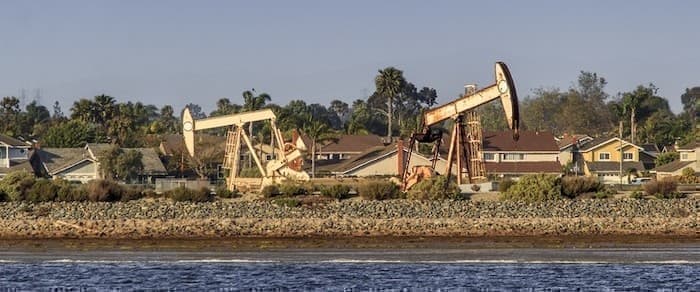For roughly two decades since Hugo Chavez won the Venezuelan presidency and commenced his socialist Bolivarian revolution, the country, which was once Latin America’s largest oil exporter, is now a destabilizing force in the region. That has only intensified in recent years under the leadership of Chavez’s successor Nicolas Maduro with a near-bankrupt Caracas, under considerable pressure from a prolonged oil price slump, crumbling energy infrastructure, and strict U.S. sanctions. To reinforce his grip on power, obtain urgently needed capital, and rebuild Venezuela’s shattered oil industry Maduro has courted closer ties with Russia, Cuba, and Iran. The growing involvement of those states in Venezuela, along with the Shiite Muslim political organization and the U.S. listed terror group Hezbollah establishing operations in Venezuela, is further undermining political stability in South America. While much of Maduro’s past posturing has typically been directed toward neighboring erstwhile U.S. ally Colombia, it is eastern neighbor oil-rich Guyana which is now feeling considerable pressure from Caracas. For decades, Caracas has been contesting the sovereignty of a large swathe of Guyana west of the Essequibo River, which makes up around 40% of the territory of the former British colony. That area is known to be rich in gold and other natural resources. Control of the contested region may ultimately determine who has authority over a large portion of Guyana’s Atlantic maritime territory and the vast offshore petroleum resources discovered there. This includes part of the prolific deepwater offshore Stabroek Block, where ExxonMobil has identified more than eight billion barrels of recoverable oil resources and expects to be pumping over 750,000 barrels of crude oil daily by 2026. The dispute, which emerged from an 1899 arbitration award in Guyana’s favor, arose in its modern form out of a 1966 agreement aimed at solving the conflict with the commission failing to fulfill its mandate which Caracas argues nullifies the original decision.
Maduro sees the long-standing dispute as a means of rallying Venezuela’s people behind his autocratic regime and distracting them from the near-collapse of what was once Latin America’s wealthiest country. Guyana’s considerable offshore petroleum wealth is also a powerful incentive for an increasingly destitute and near-bankrupt Caracas. In roughly two decades, Maduro and his predecessor Chavez essentially annihilated Venezuela’s once-mighty petroleum industry and destroyed what was Latin America’s wealthiest economy. Control of a portion of the Guyana-Suriname Basin, which is shaping up to be the hottest offshore drilling location in Latin America, could give Venezuela’s devastated oil industry a solid lift. That could give Venezuela’s shattered economy where shortages of everyday goods, including gasoline, and ever-shrinking gross domestic product have become the new normal. In 2020, the IMF estimated that the oil-rich country’s gross domestic product shrank 25% and will contract again by 10% during 2021. This indicates that the involvement of Russia, Cuba, and Iran has failed to provide any sustained economic recovery and is only prolonging the lifespan of Maduro’s feeble regime.
Related: Egypt Looks To Resume LNG Exports As Prices Rise
In the latest development, Maduro’s regime rejected an International Court of Justice (ICJ) December 2020 jurisdictional ruling regarding its ability to arbitrate on the disputed border and territory. Caracas failed to participate in the hearing that led to the ICJ ruling. The tribunal reiterated that while this was a disappointing development it does not affect the validity of its judgment and jurisdiction over the matter. It could take up to three and a half years for the ICJ to formally arbitrate on the matter, provide a ruling and validate the border between Venezuela and Guyana. Sensing the opportunities that the delays present, which are exacerbated by the COVID-19 pandemic, Maduro earlier this month, issued a decree unilaterally claiming the territory comprised of the land and ocean floor west of the Essequibo Coast. Venezuela’s President then went on to tweet that he intends to “reconquer” the Essequibo region.
Guyana’s government perceives the decree as a threat to the country’s sovereignty. The U.S., Canada, the Organization of American States (OAS), and regional group the Caribbean Community, known as Caricom, have rejected Maduro’s claims. Incursions into the disputed zone by Venezuela’s military remains a constant risk. There have been past instances of Venezuelan naval vessels entering Guyana’s waters and harassing vessels working in various petroleum blocks as well as soldiers crossing the disputed frontier. As a result of Maduro’s decree, Guyana bolstered its military presence in the disputed territory deploying soldiers to the border. Since the end of Guyana’s political crisis late last year, the U.S. has been progressively ramping up its relationship with the government of President Mohamed Irfaan Ali. There is also a history of joint training exercises between U.S. Southern Command and Guyana’s military, which should hopefully deter Venezuela’s military from further actions in the contested territory.
However, the latest developments threaten Guyana’s burgeoning oil boom, which is expected to give the former English colony’s economy and government revenues a massive boost. The IMF predicted that Guyana’s developing oil industry was responsible for the economy expanding by 26% during 2020, despite the impact of the pandemic, with another 8% GPD growth forecast for 2021. Maduro’s belligerent stance on the matter highlights the urgency with which President Biden must attend to the Venezuelan crisis and the considerable regional instability it is creating. That is further amplified by the failure of U.S. sanctions to curb Caracas’ power and trigger urgently required regime change, indicating that a different approach is needed.
By Matthew Smith for Oilprice.com
More Top Reads From Oiprice.com:
- Oil Majors Poised To Make Biggest Geothermal Investments In 30 Years
- Biden's Green Energy Boom Could Send These Electric Vehicle Stocks Soaring
- Goldman Sachs: Biden’s Federal Land Drilling Ban Is Bullish For Oil


















